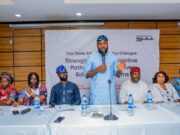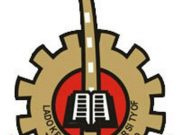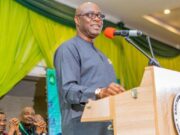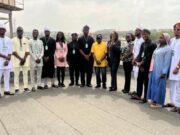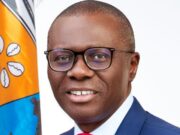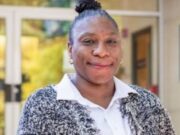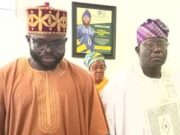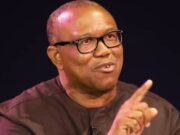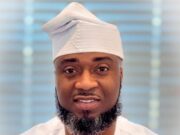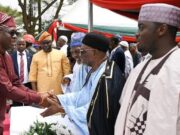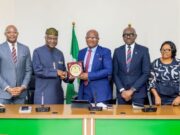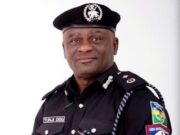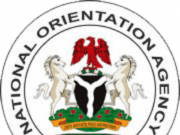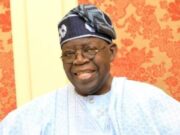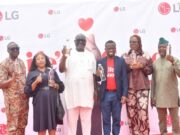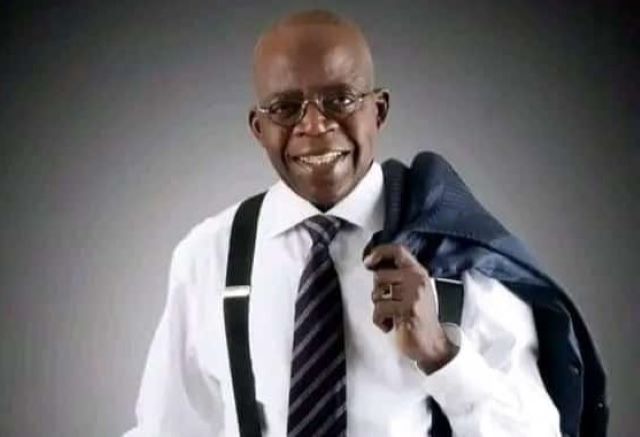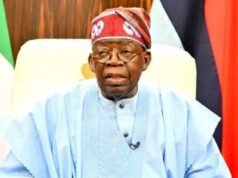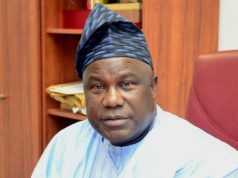It has been three weeks of non-stop, everyday-grinding-and-humping for Nigeria under President Bola Ahmed Tinubu and he does not seem like who wants to slow down soon. Since he his inauguration as President on May 29, Tinubu, whom the younger generation of Nigerians, especially those whose contact address is on Twitter, have re-christened as the ‘Idan-gan-gan’, a Yoruba alias, loosely translated as ‘the Real Magic’, has either made proclamations or announced decisions on issues touching on the life of every Nigerian and such proclamations, decisions have turned out to be widely accepted.
For instance, last week closed on an unexpected note of the suspension of the Central Bank of Nigeria (CBN) Governor, Godwin Emefiele, by the President. Made public late, many watchers of the activities of the administration had suggested then that fallouts from the action will feature very prominently this week and true to that projection, ripple effects from action are still unfolding. The action has also come across as one of the many actions of President Tinubu that have been universally praised as welfarist, either because of the room it will create for the healing of the nation’s monetary environment, or because of the pains of the recent past, inflicted by his Naira redesign/cash swap policy, to which many have permanently lost their livelihoods or their very lives.
Following Mr Emefiele’s suspension on Friday night and since leadership or administration, just like nature, abhors vacuum, an interim CBN Governor emerged, as directed in the statement announcing his suspension, in the person of Folashodun Sonubi, who was Deputy Governor in charge of Operations Directorate. Sonubi will act till a substantive governor is elected.
“President Bola Ahmed Tinubu has suspended the Central Bank Governor, Mr Godwin Emefiele, CFR, from office with immediate effect. This is sequel to the ongoing investigation of his office and the planned reforms in the financial sector of the economy. Mr Emefiele has been directed to immediately hand over the affairs of his office to the Deputy Governor (Operations Directorate), who will act as the Central Bank Governor pending the conclusion of investigation and the reforms”, a statement issued by the Office of the Secretary to the Government of the Federation (OSGF) had announced Friday night.
Then signals started beaming out of the apex bank; on Wednesday, in an attempt to fist unify, then stabilise the exchange rates, the CBN floats the Naira. Floating the Naira has been explained to mean that Nigeria has allowed market forces to determine the exchange rate of its currency. Although they also warned that this will come with some initial shocks, like it has been disclosed that it lead to a significant rise in government debt in naira terms by about N12 trillion to N90 trillion that is external debt of $42bn will increase by the difference between the old and new rates. As a result of the above, the debt to GDP ratio will increase by about 5 percent. However, in the overall, they have called it a bold and positive step towards recovery.
Another event during the week, which sourced origin from the past, especially from some of the actions of the week before last, was the constitution of the 10th National Assembly, especially how the principal officers of both chambers of eventually emerged. The ruling All Progressives Congress (APC) had instructed its members-elect, including the returning and freshers, on the path to follow; Godswill Akpabio/Barau Jibrin for the Senate and Tajudeen Abass/Benjamin Kalu for the House of Representatives. However, it took the intervention of the President, who is statutorily the leader of the party, to step in and deploy the depth of his ingenious strategy of persuasion. This week
Nigeria got its brand new National Assembly, being led, at both chambers, by the preferred APC candidates.
Now the first day of work in the country, being June 12, was a national public holiday to honour democracy and its many heroes in Nigeria, especially the icon of the contemporary Nigerian democracy, Bashorun Moshood Abiola. However, since our President hardly tires, working almost round the clock, he still used the day to carry out some activities, which would set new tones for some segments of the national life.
Starting with the Democracy Day message to Nigerians, President Tinubu reminded them of the sacrifices that have been made for the country to return to the path of popular global way, charging all to protect the freedom that it has bestowed and not let the sacrifices be in vain. He reminded citizens that the democracy they have today did not come on a silver platter, a reason why it must be protected, recalling some of the many heroes of democracy in the June 12 struggle, including the wife of late Abiola, Kudirat Abiola and Chief Alfred Rewane. He likened the June 12 struggle to the struggle for Nigeria’s libration from the colonial master and described it as the country’s second independence struggle, referencing the unjust annulment of the generally acclaimed free and fair elections, which ultimately materialized with the 1999 general elections.
Watchers have qualified his Democracy Day message as part of a process, a process aimed at regenerating the feelings of nationalism in Nigerians, as well as strengthening faith and confidence in the actions of government. To those who have characterised the motive of the Democracy Day message, it came at a good time because the events that led to the 2023 general elections and the electoral process itself, did more harm to the already thinned cord of unity in the country. A message that seeks to find some common identity for all the various persuasions within the country is considered more than a soothing balm.
The message also built further on the efforts to get the majority to agree with the government on the need to do away with fuel subsidy ‘albatross’, saying “it is for this reason that, in my inauguration address on May 29, I gave effect to the decision taken by my predecessor-in-office to remove the fuel subsidy albatross and free up for collective use the much-needed resources, which had hitherto been pocketed by a few rich. I admit that the decision will impose extra burden on the masses of our people. I feel your pain. This is one decision we must bear to save our country from going under and take our resources away from the stranglehold of a few unpatriotic elements.
“Painfully, I have asked you, my compatriots, to sacrifice a little more for the survival of our country. For your trust and belief in us, I assure you that your sacrifice shall not be in vain. The government I lead will repay you through massive investment in transportation infrastructure, education, regular power supply, healthcare and other public utilities that will improve the quality of lives”, he had said.
It would be recalled that one of the President’s key economic targets, as he has constantly enumerated, at different fora, is shoring up oil and gas production and part of the plan to achieve that will be by rooting out the menace of oil-theft. It would be recalled that he has constantly indicated his worry about the steady sabotage of the nation’s economic mainstay, being the oil and gas sect. In his first meeting with the security and intelligence chiefs, the President gave the categorical charge to the chiefs to go after oil thieves and crush them. He also expressed his concern to traditional rulers, when he met with them on June 9.
So, during the course of the week, the President received various guests at the Villa and among them were those whose backgrounds and clouts would suggest that he is once again up to something especially with respect to his target at protecting the nation’s oil and gas domains. He has been meeting with key figures from the Niger Delta, like on Wednesday, he met with three key figures from the oil-rich region; the Managing Director of the Niger Delta Development Commission (NDDC), Samuel Ogbuku; former Managing Director of the NDDC, Chief Timi Alaibe; and former Director-General of the Nigerian Maritime Administration and Safety Agency (NIMASA). Dr Dakuku Peterside. Ogbuku he reason was to update the President on developments
On Friday, he met with a former lead agitator for the Niger Delta course, Alhaji Asari Dokubo. Though the other gentlemen he met earlier did not disclose what their discussions with the President were about, Alhaji Dokubo said so much; ending oil-theft and national security: “we discussed on wide range of issues, especially on security and oil thief in the Niger Delta. Myself and my brothers, have assured the President that there would be zero oil theft and vandalization in the Niger Delta. We’re going to work with an NNPCL and the IOCs to make sure that oil theft is brought to zero”.
From all indications, he seems to be lining his cards out on the target to increase crude oil production to 4 million barrels per day and 12 billion cubic feet of gas per day capacity by 2030. What has become obvious about his modus operadi is that whenever he targets anything, he draws his plans, deploys his strategy and does not stop until the goal has been achieved. Winning the war against oil-theft and vandalism of critical infrastructure looks almost certain to be achieved.
Appealing to the sensitivities of Nigerians and firming up security and protecting the nation’s economy were the only things that kept the Presidential Villa abuzz last week, there were other important events that were worth noting.
We should remember that it was the Democracy Day week and it was not just all about the President’s speech. In the morning, he also inspected a parade mounted for him by the Guards’ Brigade and other forms of entertainment. After the parade, he held series of meetings, some of which were in readiness for the inauguration of the 10the National Assembly. It was still same day that he signed the landmark Students Loans (Access to Higher Education) Act 2023.
On Tuesday, after the inauguration of the 10th National Assembly, Tinubu took his time to pen a message to the new leadership and the entire house, reminding them of the task and asking them to set to work without delay. He hosted students’ representatives from the National Association of Nigerian Students (NANS), who had come to him the seek clarifications on some provision of the new Students Loans Act and make some requests. He must have answered their questions satisfactorily. Earlier that day he received briefs from former President Goodluck Jonathan, Who is the Economic Community of West African States’ (ECOWAS) Envoy to Mali. He had some words for him on managing crises in Africa.
The real big news of Wednesday was the suspension of the Chairman of the Economic and Financial Crimes Commission (EFCC), Mr Abdulrasheed Bawa by the President. This, curiously, turned out to be one of the most celebrated news from the office of the President since he resumed as President, almost as celebrated as Mr Emefiele’s suspension. Meanwhile, Bawa was one of the many guests that called at the President’s office that day.
In fact, he received the governor of Nasarawa State, Abdullahi Sule; the former governor of Katsina State, Aminu Bello Masari; the Emir of Borgu, Muhammed Haliru Dantoro; and his counterpart from Kontagora, Mohammed Barau; the Group Chief Executive Officer (GCEO) of the Nigerian National Petroleum Company Limited (NNPCL), Mele Kyari; and the Chairman of the Economic and Financial Crimes Commission (EFCC), Abdulrasheed Bawa. Don’t forget Alaibe, Dakuku and Ogbuku were also his guests that day.
On Thursday he inaugurated the National Economic Council (NEC), headed by the Vice President, Kashim Shettima. All the states are members, so are some federal agencies, like the CBN. He once again evoked a national emotion when called on the governors to put their best into governance, reminding them that Nigerians are eager to be taking out of the despondence the see surrounding them.
He announced Mr Dele Alake his Special Adviser on Special Duties, Communications and Strategy; Mr. Wale Edun, Special Adviser, Monetary Policies; Mr. Yau Darazo, Special Adviser, Political and Intergovernmental Affairs; Mrs. Olu Verheijen, Special Adviser, Energy; Mr. Zachaeus Adedeji, Special Adviser, Revenue; Mr. Nuhu Ribadu, Special Adviser, Security; Mr. John Ugochukwu Uwajumogu, Special Adviser, Industry, Trade and Investment; and Dr (Mrs.) Salma Ibrahim Anas, Special Adviser, Health.
He met with former Military Head of State, Abdusalami Abubakar; pioneer National Chairman of the APC, Chief Bisi Akande; Leader of Arewa Consultative Forum (ACF), Alhaji Tanko Yakasai; and then the former Emir of Kano, Muhammad Sanusi II, whome he described as ‘Mr Monetary Policy’. Then on Friday, he met the Chairman of the Dangote Group, Alhaji Aliko Dangote, and Dokubo.
Those who know the man the younger generation has decided to name the ‘Idan-gan-gan’, will tell you he hardly tires, so we should expect more of back-to-back as this new week commences.
Credit: thenationonlineng.net







